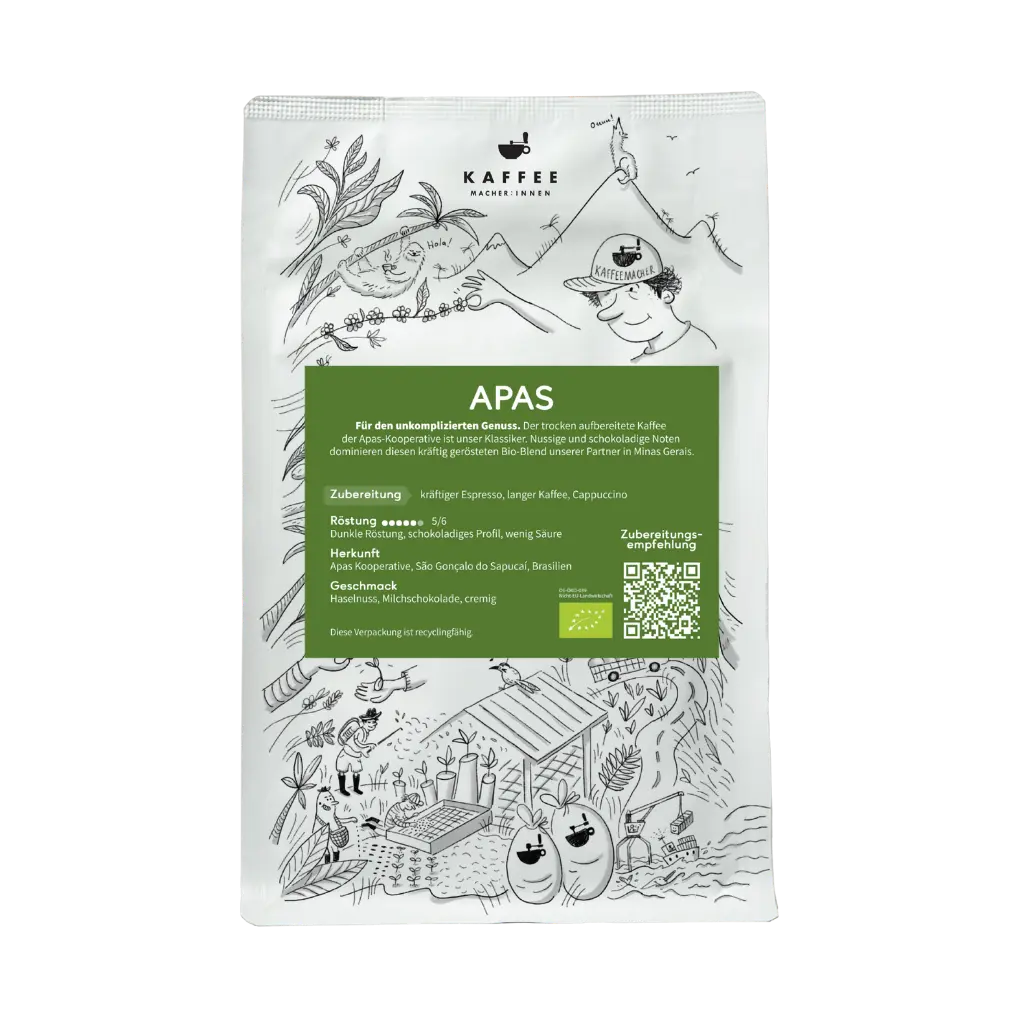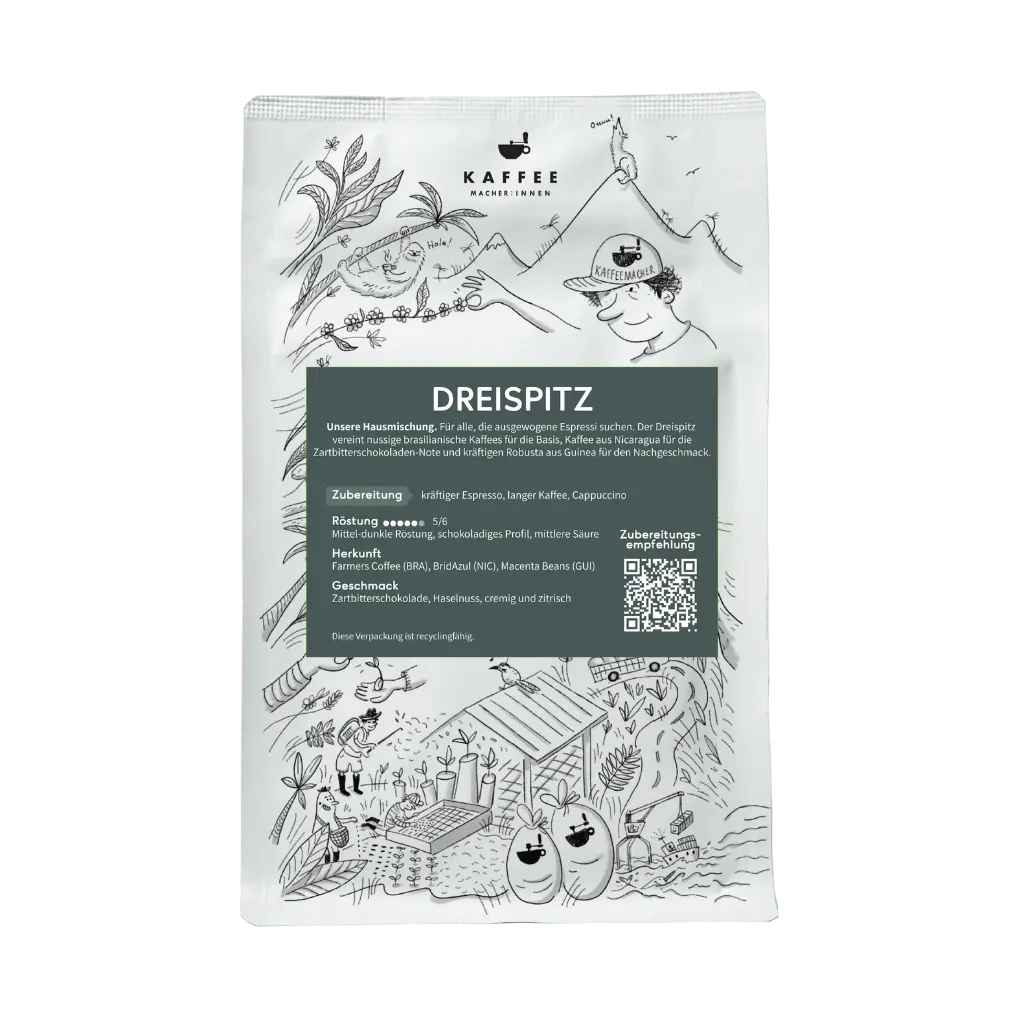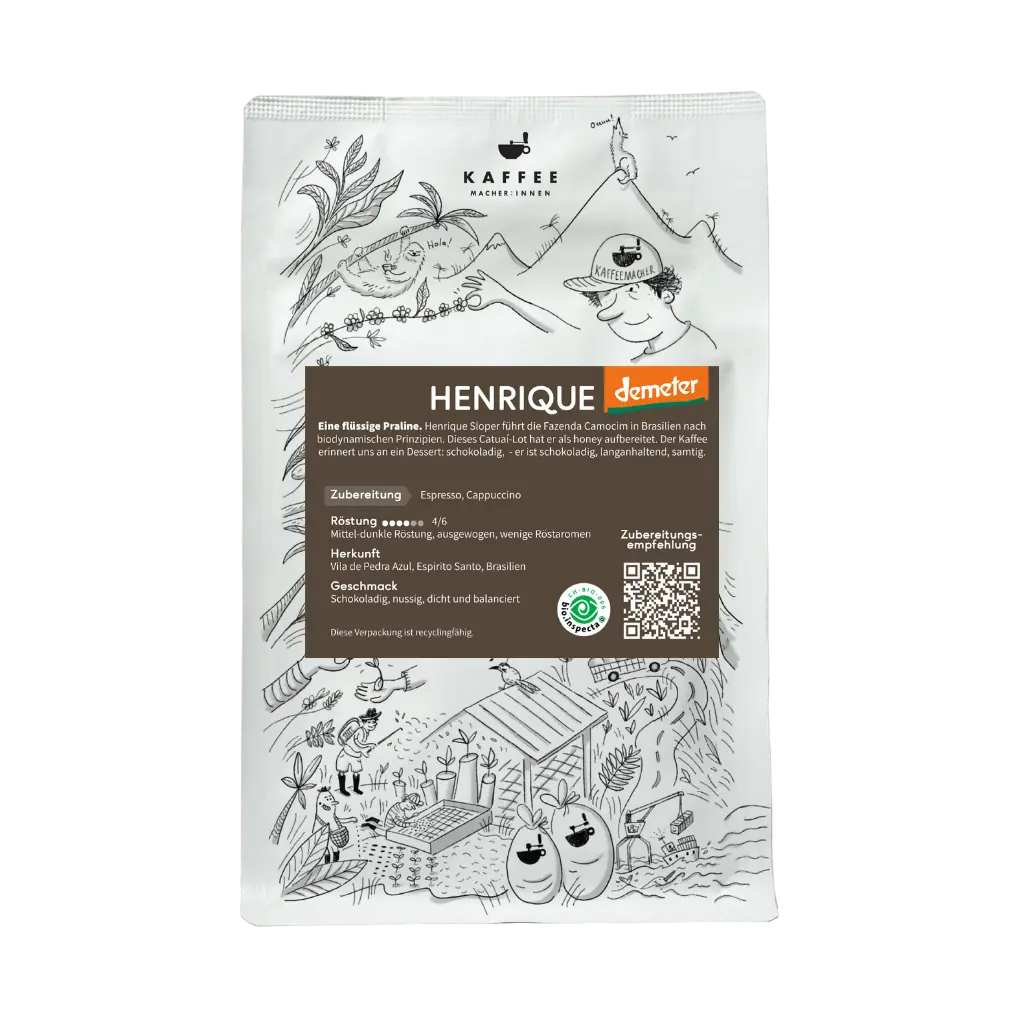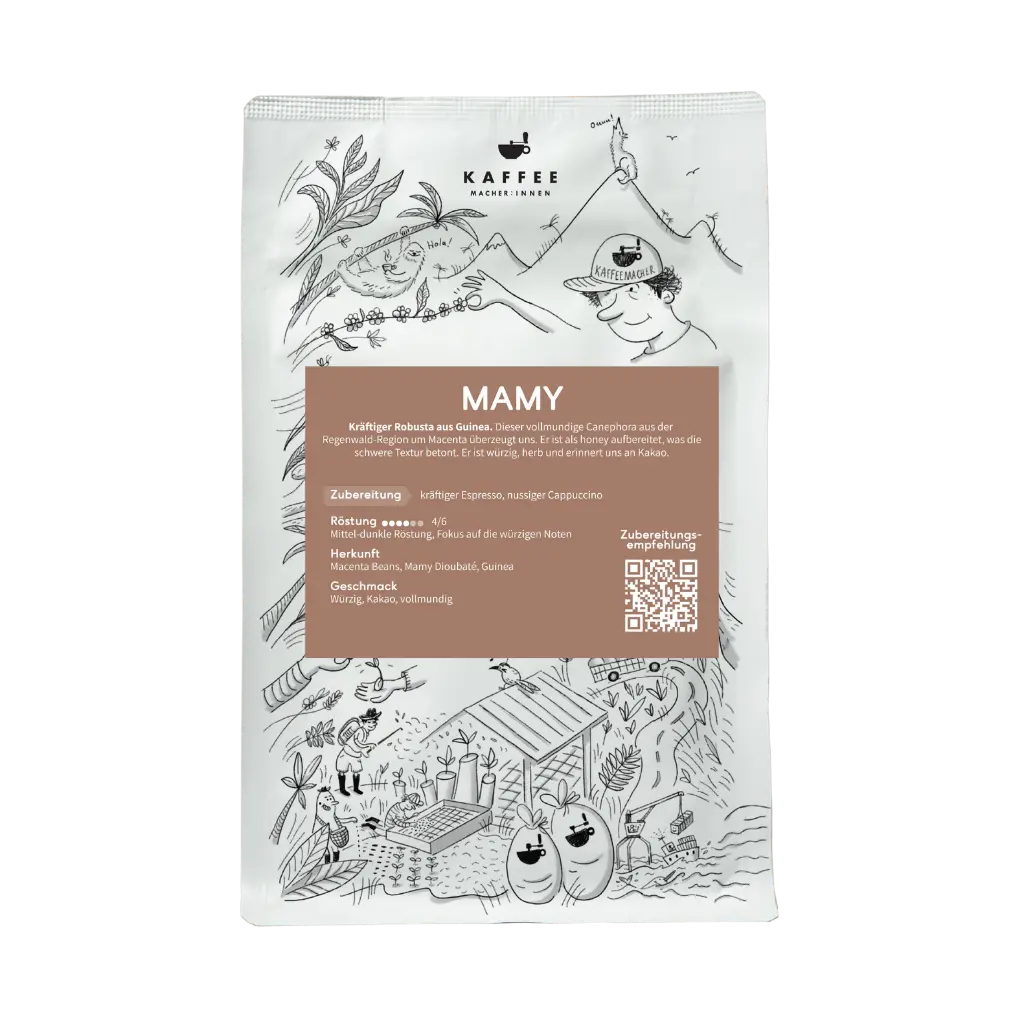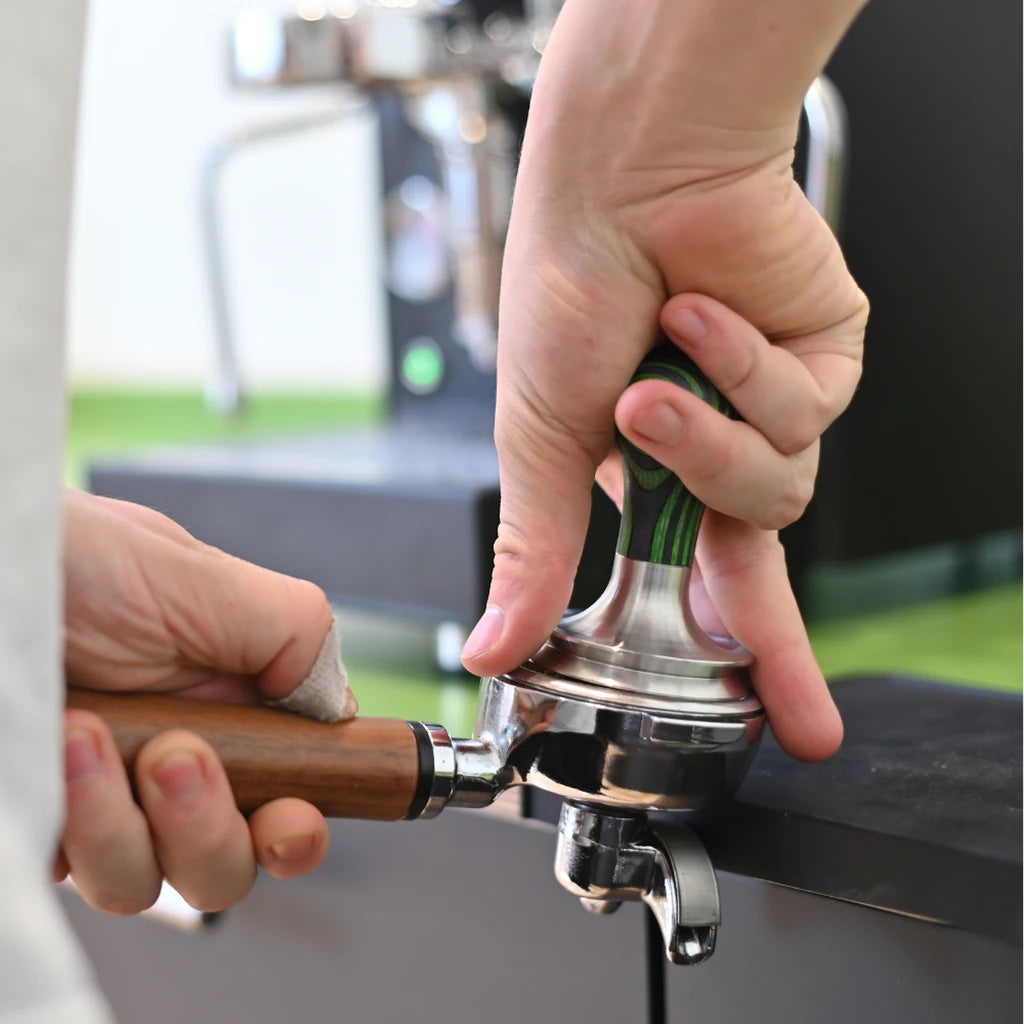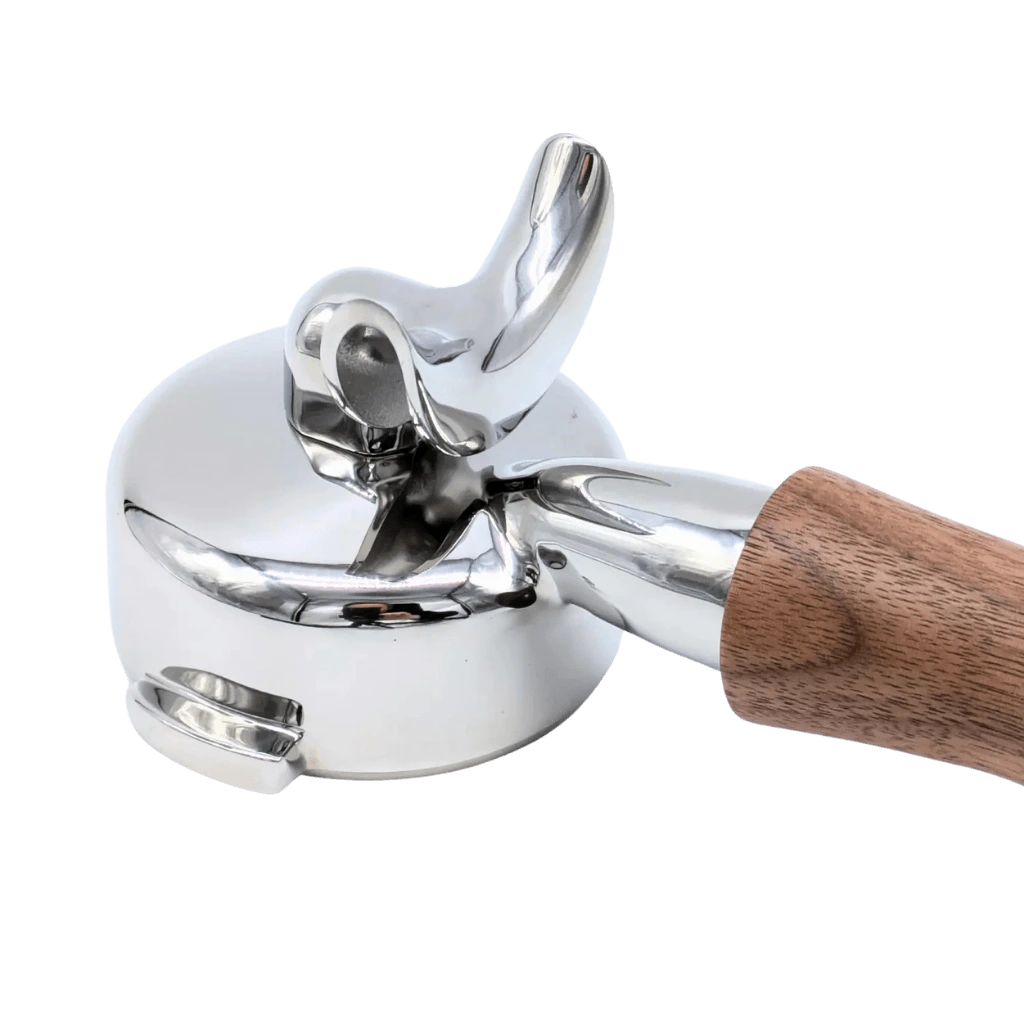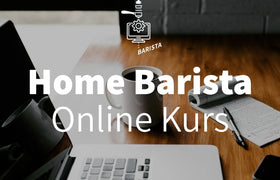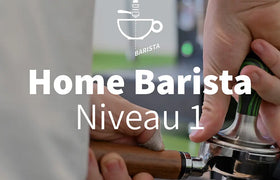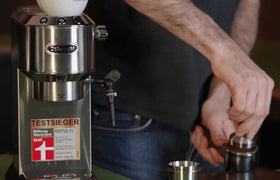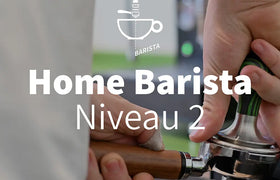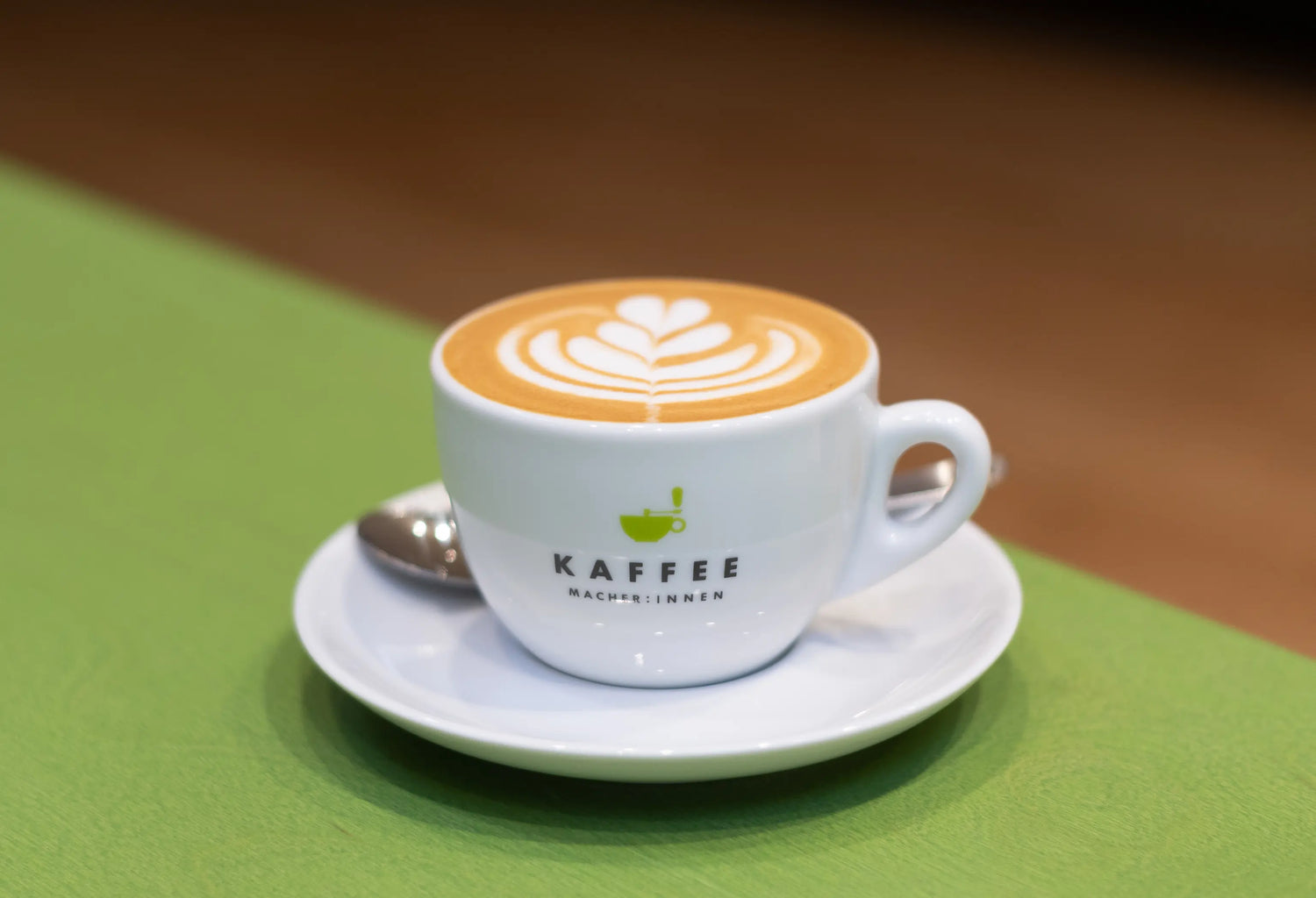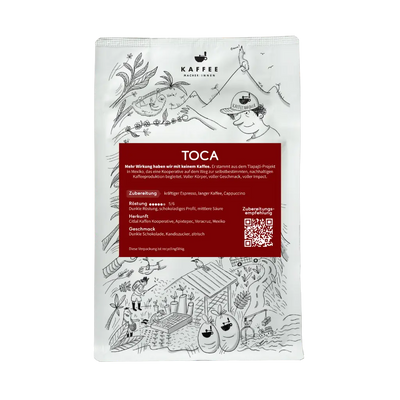The first version of this text on what we understand by sustainability dates back to 2019. It was time to revise it. And this second version won't be here forever either. We are constantly learning and incorporating this knowledge into our actions, so that today we have developed an increasingly multifaceted view of the issues that shape our thinking.
Sustainability and fairness are processes and not finite states.
Over the next few years, we will continue to refine our approaches, continually reflect on our actions, and thus remain in the process.
Good coffee for everyone
Many follow us on social media and read our blogs. Others drink coffee with us at Café Frühling or the Kaffeemacher Cafe at Basel train station , attend courses in Basel or Dinslaken, or order our coffee to their homes—we create various touchpoints, but work from the same fundamental motivation that drives our company forward:
We want to make good coffee accessible to everyone, share our knowledge of the coffee world, and provide new impetus to drive the industry forward.
In the following, we will discuss various topics related to how we understand, live, and cultivate sustainability at the coffee makers.
Sustainable entrepreneurship
Our work and our commitment are fundamentally sustainable. We see our work as long-term, socially responsible at its core, and we have enshrined this commitment and goal in our articles of association and even in the commercial register.
We are committed to connecting and collaborative work along the coffee chain . From cultivation to the cup, we promote knowledge sharing, transparency, and balance throughout the coffee value chain.
We make challenges visible, seek solutions for the industry, and contribute to a socio-ecological transformation.
We see ourselves as a learning company that shares our acquired knowledge with the market. Concrete examples include our training courses for restaurateurs, roasters, and baristas, as well as our articles and videos . We run a coffee farm, cafés, and a roastery, and are therefore exposed to the real challenges of the coffee industry. Our perspective is informed by practical experience and drives our work, as well as the experience-based basis for our decisions and recommendations.
Meaning and purpose oriented
We are a purpose-driven company. This means that our activities are centered around a goal, not profit. We view profit as a prerequisite for achieving our corporate goals. For this reason, profits are not withdrawn from our company; instead, they remain within the company and are invested in its mission statement. Purpose is not a buzzword for us; rather, it reflects the fundamental motivation and guiding principle behind our founding.
The team as a driving force
With their ideas and visions, employees shape and develop the coffee makers from within. Our philosophy appeals to and attracts like-minded people, and we support team members in developing their potential and implementing their ideas. Our corporate philosophy embraces mistakes and sees them as opportunities for growth. Our collaboration is based on trust and allows everyone to find their own path and develop further.
Customers and fellow companies as part of the community
Our customers are not just consumers of our products, but also part of our coffee community. We have been able to steadily increase our awareness, primarily through our presence on various social media platforms and the sharing of knowledge about coffee. We provide information about current developments in the coffee market through live discussions, provide articles on coffee-specific topics, and invite our customers to live Q&A sessions.
Partner companies are often valued as partners and are valued as such. Whether it's purchasing green coffee or promoting and supporting coffee farmers with new equipment, together we are stronger and can achieve more. Our goal is to find synergies and build on a network.
Social responsibility
Due to our size and brand recognition, our social responsibility outside the coffee supply chain is also growing. We are aware of this, and as a relatively new company, we see development opportunities in this area and would like to establish alliances beyond coffee in the future.
We are in the process of gathering facts and figures regarding the environmental impact of our company and its products. We are already initiating projects on waste prevention and recycling, investing in research in this area, and constantly seeking more sustainable alternatives in the areas of packaging and accessories.

In Mexico at Rancho San Felipe, our partners who make the decaffeinated coffee for us.
Sustainable green coffee sourcing
As a coffee company with our own roastery, we are aware of our role as a link in the coffee chain. We have millions of green coffees to choose from, but we "only" purchase about 25 different green coffees per year.
We equate choice with responsibility – since we have a much wider selection of green coffees than our customers have of roasted coffee, we are in the position of a door opener, and our decisions have a significant impact on the realities in the coffee's country of origin. This is a rewarding task that motivates us.
This responsibility offers a tremendous amount of opportunities to make the coffee chain more sustainable, step by step. By focusing on the origins of coffee, engaging with producers, and regularly traveling to coffee-producing countries, we realized how much leverage we now have with our green coffee purchasing. We source green coffee carefully. The inclusion of certain producers means the exclusion of others. That's why we work with partners in green coffee purchasing who share our philosophies.
A fair price for coffee producers
Ever since we started purchasing green coffee as a roaster, we wanted to understand what a fair price is for coffee producers. Thus began our intensive years of learning. We conducted discussions, wrote articles, and made podcasts about production costs, FOB , ex-farmgate prices, Fairtrade, and direct trade. Each of these concepts helped us sharpen our perspective while also asking the question: what if we don't determine the price at all?
How can we naturally place price determination in the hands of producers?
They are responsible entrepreneurs on equal footing, so why shouldn't those responsible for a product set the prices?
Achieving this essentially self-evident way of doing business requires transparency throughout the supply chain, direct contacts, and partners who all pull together. Today, we only work with green coffee suppliers who share our ideals and have internalized transparent business practices.
The prices for our green coffee are either set by the producers themselves, or we offer prices with our import partners that are significantly higher than local markets and include premiums for efforts toward organic production.
There is no single fair and equitable coffee price—these vary depending on context and season. Depending on weather patterns, foreign exchange rates, inflation, and economic shocks with global impact, we negotiate new prices with our partners year after year. The fluctuations are generally not very significant but reflect realities. Two examples:
Apas, Brazil
The Apas cooperative bases its prices on the market price for coffee, the so-called C-Price. This price fluctuates significantly seasonally. Apas adds a premium of USD 3.30/kg to its organically produced coffee.
So, if the coffee price on the exchange is USD 5/kg, Apas would charge USD 8.30/kg. This is Apas's own strategy.
Toca, Mexico
In the Toca project, we work with Ensembles as export partners. The coffee price paid covers project costs, field staff, payments to coffee producers, and premiums to encourage the transition to bio-regenerative principles.
Ensambles monitors the local market price, the so-called plaza , and based on this makes a higher offer, which is profitable for the producers.
In 2022/23 we are paying significantly more than plaza , importing twice as much as in the previous year, guaranteeing premiums and thus slowly building trust among the producers to commit to the project in the long term.
Be a partner, provide impetus and initiate change
As a coffee company that purchases green coffee and sells roasted coffee, we strike a balance: on the one hand, we are deeply rooted in small-scale, subtropical agriculture, while on the other, we are dedicated to precisely positioning roasted coffees in the end-consumer market. At these ends, and at all stages in between, we can provide impetus and bring about change.
- With the Apas cooperative in Brazil, we switched to organic coffee production in 2022 and purchase almost their entire organic harvest.
- In the Toca project in Mexico, we are leading an indigenous community toward organic coffee production and bringing direct market access to a highly marginalized region.
- Also in Mexico, we have established what is probably the most local decaffeinated coffee with Rancho San Felipe – the coffee is grown, processed, decaffeinated without chemicals, and shipped within a radius of 80 km.
- With Macenta Beans in Guinea, we have found partners who turn Robusta into specialty coffee while protecting the rainforest.
- And on our farm in Nicaragua, we experiment with different post-harvest processes, varieties, and shade trees to produce coffee that is as independent of external influences as possible.

Juan Boillat, roaster and barista. In the background: our Reicat catalyst, which we use to purify the exhaust air.
More ecological agriculture
A key pillar of this approach is a clear focus on soil health. The better the soil, the more resilient the coffee plant. We support agricultural approaches that are regenerative and take a holistic approach to coffee production. This includes the in-house production of fertilizer, which makes producers less dependent on market fluctuations.
Small-scale producers, in particular, need a broad toolbox to respond to the constant challenges of coffee cultivation. Whether organic, biodynamic, regenerative, or a blend of different approaches – we support anything that empowers coffee producers and empowers them.
We learn when we talk to FiBl about soil erosion and fertilizers , when agricultural advisors explain different types of compost to us, when scientists recommend agroforestry systems to us, and when sustainability consultants from large companies describe their strategies for adapting coffee farms to climate change.
The solutions are complex and contextually diverse. Neither a single label nor a single form of agriculture can survive in an unpredictable and rapidly changing climate. Hybrid approaches and flexibility are needed, which requires openness and curiosity, and we are committed to these two virtues.
Ecological footprint and environmental impact points
Coffee companies, by definition, operate globally within the coffee supply chain. This is in the nature of things, as the coffee is grown in the Southern Hemisphere, shipped here, roasted, and shipped. The coffee bean not only connects worlds that are far apart in content, but also travels astonishing distances in the process.
The ecological footprint of coffee is not without controversy – depending on the type of cultivation, efficiency of logistics, roasting method, preparation method, and, last but not least, the decision as to whether, how much, and what type of milk is added to a coffee, coffee can go from being climate-neutral to being climate-damaging. There's a world of difference between the two, and analyzing, calculating, understanding, and deriving actionable measures requires patience and energy, which should be incorporated into this analysis.
Since 2022, we've been using calculators ourselves to calculate our carbon footprint—on the coffee farm, in the roastery, and in the restaurant. We work with consulting firms that verify our calculations, giving us confidence that our calculations are accurate.
We don't aim to calculate individual products, business units, or the entire company and then offset our emissions . We calculate so we understand where we can initiate which reduction paths, where we need to put which levers in motion so that we can not only reduce emissions but also bring about positive change and, ideally, achieve a reduction effect.
With the conversion from conventional to organic coffee production at the Apas cooperative, we likely contributed to a single-digit change in Apas' CO2 emissions (figures under review). Our internal calculations even show a higher double-digit change.
By establishing the new decaf supply chain within the smallest radius in Mexico, we were able to save more than 18,000 nautical miles of logistics compared to our previous decaffeinated coffee.
Thanks to precise energy consumption measurements for espresso machines, we can provide increasingly better recommendations as to which machines perform in the most climate-friendly way possible and which ones are anachronistically pursuing the pure focus on 1960s espresso machine aesthetics.

Measure, measure, measure. We create knowledge about the efficiency and ecological footprint of machines and report on them in our tests.
New tasks through self-review
Through the self-imposed and ever-increasing scrutiny of our actions across the entire coffee chain, we not only continually discover new blind spots, but also constantly give ourselves new tasks on how we can improve existing processes.
How do we achieve the most environmentally friendly coffee packaging?
Which wood makes our tamper CO2 positive?
Which barista cloths protect the water from microplastics?
Which type of milk has the shortest delivery route and the lowest footprint?
We do not see this self-examination as a burden, but rather as a new motivation to continue developing the company, to identify and seize new opportunities, and thus to be able to help shape our collective future.
We cannot tackle these new challenges alone and will therefore rely even more on partnerships and alliances to manage complex projects and achieve overarching goals.
Sustainability in gastronomy
As coffee makers, we run two cafés in Basel. Our goal is to create places and spaces that convey our love of coffee and invite you to relax. Our two concepts, Café Frühling in Kleinbasel and the Café auf der Passerelle in Basel SBB station, are both places where we can convey our high standards for coffee and food.
From the very beginning, we've maintained a close relationship with our suppliers, focusing on regional and organic products, and preferring to source products from small businesses or producers. Our baked goods come from the Vital Speisehaus organic bakery in Dornach, and our cow's milk comes from the Marchmatt organic farm in Reigoldswil. These two cafés are among the largest customers of our own roastery.
We co-founded the Swiss organic oat drink Gutsch , are part of the cooperative and act as a distribution center for other gastronomic projects.



